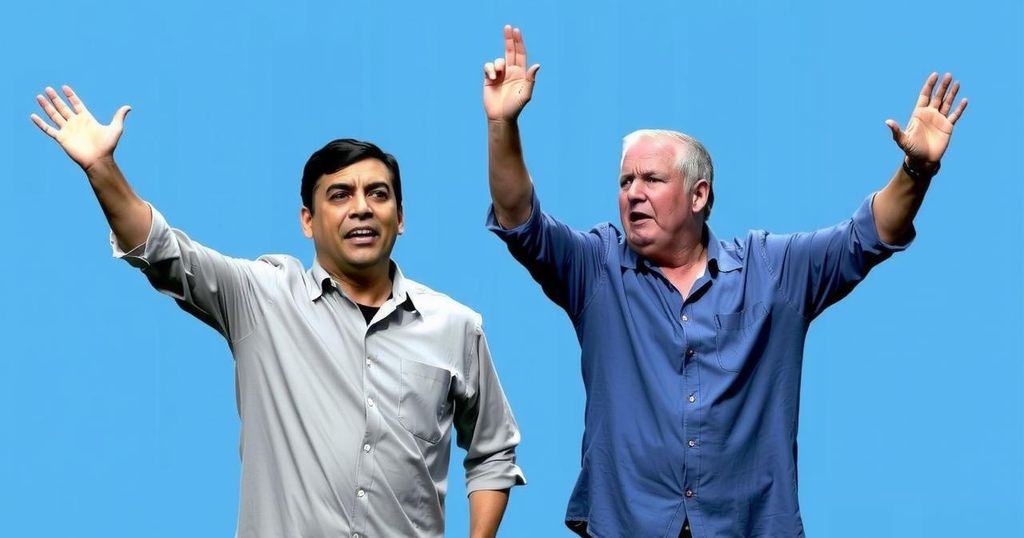Uruguay’s Presidential Runoff: A Close Contest Between Parties

Uruguay’s presidential runoff features a tight race between Álvaro Delgado of the National Party and Yamandú Orsi of the Broad Front after neither secured a majority in the first round. Voter apathy and significant concerns over crime contribute to the competitive atmosphere, as both candidates address economic and social issues relevant to the electorate’s needs. The runoff on November 24, 2024, highlights the importance of democratic engagement in Uruguay.
Uruguay’s presidential election has transformed into a fiercely competitive runoff following a previous vote where no candidate achieved an outright majority. The runoff pits Álvaro Delgado of the ruling National Party against Yamandú Orsi from the Broad Front, a leftist coalition. The first round revealed Delgado receiving 27% of the votes and Orsi obtaining 44%. Their campaigns have struggled to gain momentum amidst widespread voter apathy and indecision, with approximately 10% of voters still undecided as the runoff approaches. Current issues concerning public safety, particularly a rise in violent crime, have added urgency to their campaigns, as both candidates seek to address growing voter concerns while also demonstrating fiscal responsibility and policies favorable to investment.
Delgado, who served as Secretary of the Presidency, is seeking to align his platform with the popular outgoing president’s policies, emphasizing continuity and economic growth. Contrarily, Orsi aims to position himself as a representative of the average Uruguayan, advocating for tax incentives and industrial policies, while also considering social security reforms. This election underscores the stability of Uruguay’s democratic process, as it moves away from extreme populism seen in other regions.
In summary, the upcoming presidential runoff on November 24, 2024, marks a critical moment in Uruguay’s electoral history, with candidates navigating both economic and social challenges while appealing to a diverse voter base.
In the context of this election cycle, Uruguay finds itself at a political crossroads following vibrant governance by the Broad Front, which led the nation for 15 years before being replaced by a center-right administration. This prior government was notable for enacting progressive laws including the legalization of abortion, same-sex marriage, and marijuana sales. The current presidential election reflects broader themes of democratic stability and citizen engagement against the backdrop of socio-economic concerns, highlighting the significance of this runoff as both candidates strive to capture the electorate’s attention and trust.
The impending presidential runoff in Uruguay represents a pivotal electoral moment characterized by a close race between experienced candidates from contrasting political ideologies. Voter engagement remains uncertain, with key issues of economic stability and public safety influencing the outcome. The election not only reflects on the candidates’ campaigns but also serves as a measure of Uruguay’s democratic health amidst changing political landscapes in the region.
Original Source: apnews.com







